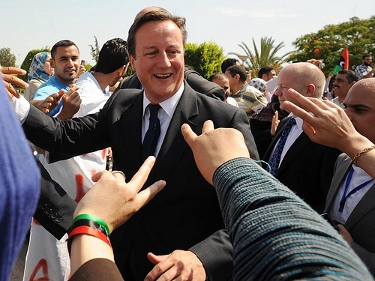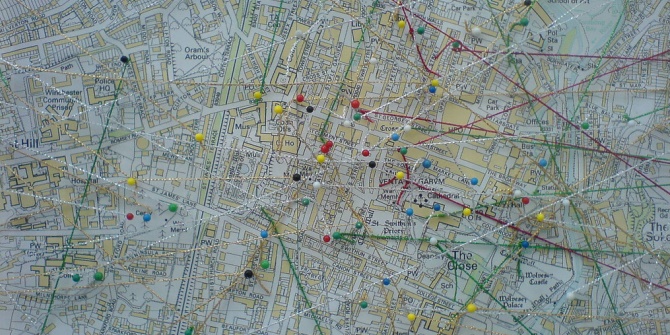 Rocked by the expenses scandal, the notion of ‘politics’ seems to be going out of fashion. However, despite public distrust and apathy, politics does ensure stability and order, and delivers far more than most people acknowledge or understand. Matthew Flinders makes a passionate argument for the power of politics to improve our lives.
Rocked by the expenses scandal, the notion of ‘politics’ seems to be going out of fashion. However, despite public distrust and apathy, politics does ensure stability and order, and delivers far more than most people acknowledge or understand. Matthew Flinders makes a passionate argument for the power of politics to improve our lives.
Public opinion surveys suggest that large sections of the public are more distrustful, disengaged, sceptical and disillusioned with politics than ever before. ‘Politics’, for the many rather than just a few, has become a dirty word conjuring up notions of sleaze, corruption, greed and inefficiency. And yet it is exactly because politics is held in such low esteem that someone needs to swim against the tide and dare to argue that democratic politics matters. It matters because politics achieves far more than we generally give it credit for.
Even though I hesitate to put my name to such unfashionable views I’d argue that the vast majority of MPs are over-worked and under-paid, that those terrible ‘bureaucrats’ that everyone wants sacked generally do a fantastic job in the face of huge pressures, and most broadly, democratic politics delivers far more than most people acknowledge or understand. The time has come to stand up and fight back in the name of politics because we cannot allow our political system to become synonymous with moats, duck houses and bath plugs. Public apathy and distrust places a mighty weight on those who have stepped forward on behalf of society in order to attempt to deal with the wave after wave of crises (social, economic, environmental) that crash upon the shore of politics with ever increasingly frequency. Let me be even bolder.

I am not arguing that democratic politics as we know it is perfect, that reform of some form might not be necessary or that the MPs expenses scandal did not reveal some politicians acting in a completely immoral (and illegal) manner. But I will not let the behaviour of a few destroy the achievements of the many. As a university Professor of Politics and as a governor of a large NHS Foundation Trust I know how democratic politics can and does affect and shape people’s lives positively. It saves lives. It forges a sense of collective endeavour, social support and a sense of humility. Although imperfect, we can do much worse than honour ‘mere politics’. Indeed we must examine very carefully the claims of those who would do better or who would apparently turn their backs on politics completely.
Let me stick my neck out even further and suggest that the public have become politically decadent in their expectations about what politics should deliver and how politicians should behave. This contemporary climate of anti-politics is arguably rooted in a generation that has become complacent and parochial, and in doing so have forgotten the alternatives to democratic politics. Those individuals that remember the two world wars that stained the first half of the twentieth century might well possess a far more urgent and personal understanding of why politics matters and why it is sometimes necessary to speak up in its defence. Politics succeeds because it generally ensures stability and order: it avoids anarchy or arbitrary rule. For those who argue that democratic politics is broken in Britain would do well to or read Tim Butcher’s Blood River (an account of his recent journey across Africa and the raw violence, corruption and poverty he encountered).
However, as part of this fight back politicians urgently need to rediscover the moral nerve and capacity to speak with the authority and weight of their predecessors. At the heart of this rediscovery must be the acceptance that the ‘the first business of government is to govern’ as Churchill put it ‘which may at times call for the deliberate endurance of unpopularity’. The public mood has shifted away from anger and fury towards politicians to a calmer plea for honesty. The public are not stupid. They understand that the financial situation is not good and that significant cuts within the public sector will have to be made, just as they are aware that responding to climate change is likely to require lifestyle changes. But politicians must be willing to demonstrate courage and an appetite to speak with emotion, clarity and direction. They need to be confident about what they believe is true, set out their agenda and not be buffeted by the next day’s headlines or focus groups. Political leadership: nothing more, nothing less.
Speaking in defence of politics is not easy. The anti-political climate has reached such a level that anyone daring to stand up for politicians or political processes risks being immediately labelled as irrational or – even worse – harbouring political ambitions themselves. I harbour no ambitions within party politics but can no longer stand on the sidelines and watch a noble profession – public service interwoven with a belief in the capacity of collective endeavour – be the constant focus of ridicule and derision. Almost half a century ago Bernard Crick wrote In Defence of Politics as a sharp and thoughtful rejoinder to those who would decry the achievements and principles of democratic politics. His argument is even more relevant today. Sing out in praise of politics!
Matthew Flinders’ Radio 4 Programme, In defence of politics, is now available on listen again.
Please read our comments policy before posting.






